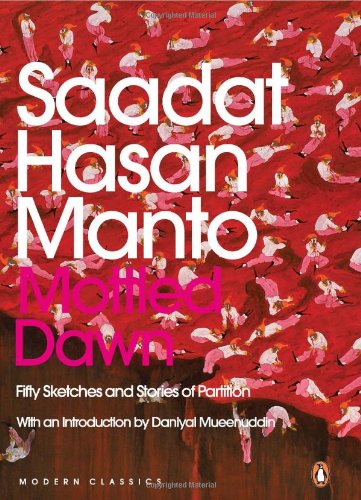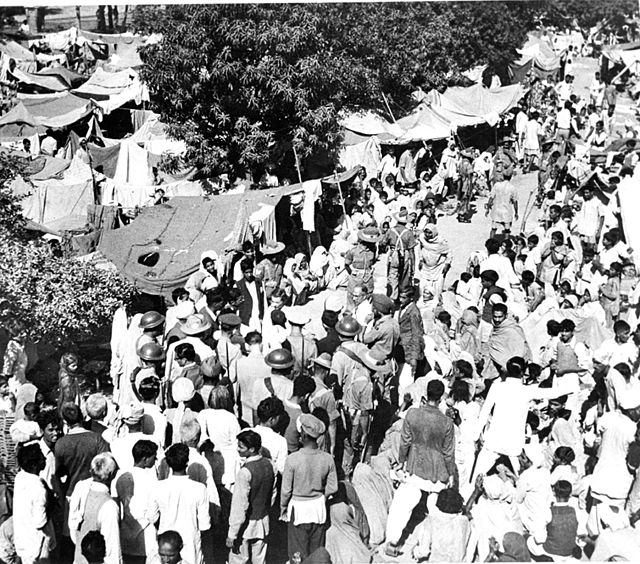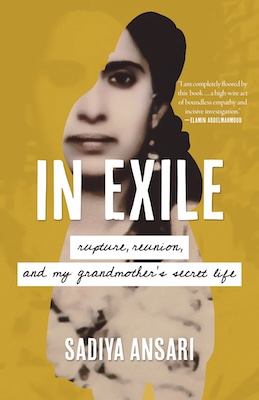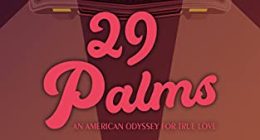In 1947, the British ended their long and extractive colonial rule in India with a final cruel act: dividing it into two nations, Hindu-majority India and Muslim-majority Pakistan.
Despite my family’s roots in India, I had little idea of Partition’s impact on my own family. I knew my father’s family had moved from Hyderabad Deccan to Karachi, but we never spoke about it, and I never thought deeply about what they lost, or who they left behind. I didn’t even quite process that they were part of the 15 million refugees Partition created. But that changed when I started investigating another dark period in my family’s life—one where my paternal grandmother left my father and his six siblings for a period of nearly two decades.
As I immersed myself in archival research and literature about the period leading to the British leaving India, it helped me understand the massive political upheaval during my grandmother’s life, exacerbating the personal turmoil she faced as a woman of her generation with little agency over her own life, married off at 14, only to become a widow in mid-thirties. It brought home how vital it is to see history through not just ordinary people’s lives, but ordinary women’s lives.
Authors Kamila Shamsie and Sunjeev Sahota have discussed the painful irony women of my grandmother’s generation in the subcontinent experienced: while the campaign for azaadi, freedom from the British, succeeded in 1947, that it did not extend to women’s everyday lives.
Nor did it bring the unbridled joy expected after answering to foreign overlords for centuries. The weight of colonial rule was replaced by communal violence and fractured communities, Faiz Ahmed Faiz’s Subh-e-Azadi famously referring to the beginning of this new era as a “mottled dawn.”
Here are seven books about Partition—what led to this rupture, the horrors of that time, how these new nations were built, and how all of this has reverberated in subsequent generations, especially for women.

Mottled Dawn: Fifty Sketches and Stories of Partition by Saadat Hasan Manto
Saadat Hasan Manto was one of the most prolific writers of his time — a journalist, screenwriter and literary master. Born in 1912 in Punjab, Manto was determined to stay in Bombay where he settled post-Partition but eventually moved to Pakistan when communal violence shook him. Mottled Dawn, referring to Faiz’s famous poem, is a collection depicting the violence and madness of that time. One of the most memorable is “Toba Tek Singh”, following a Sikh patient held in a Pakistani asylum for years after Partition. As he and others are moved to “their” new countries, Manto artfully reflects the wider bewilderment and resistance in these patients, who were “dead set against the entire operation.”
A Thousand Times Before by Asha Thanki
What if you didn’t just hear ancestral stories, but you experienced them? That’s the premise of this incredible intergenerational yarn unspooled by debut author Asha Thanki. Three generations of women are connected through a tapestry, our guide in this narrative, Ayukta, explains to her wife her hesitancy to have a child. The saga spans three generations of women, connected through a tapestry, following her family’s journey from Pakistan to India during Partition, and onwards to the U.S. where Ayukta shares her family’s mysterious abilities for the first time.
The Book of Everlasting Things by Aanchal Malhotra
The intricacy of calligraphy and artistry of perfume first bring together two youngsters in 1938 Lahore, and over a decade, Samir Vij and Firdaus Khan’s innocent love for one another grows until the fallout from Partition wrenches them apart. Malhotra uses her deep knowledge as a historian and skill as a storyteller to paint a vivid portrait of Lahore during this tense period, while also creating a rich characters who inherit both craft and allegiances. Although this is Malhotra’s debut novel, this work can be seen as a continuation of her deep examination of Partition, with non-fiction titles including Remnants of Partition: 21 Objects from a Continent Divided and In the Language of Remembering: The Inheritance of Partition.
The Great Partition: The Making of India and Pakistan by Yasmin Khan
Originally published in 2009, this pivotal non-fiction title was updated in 2019 by Yasmin Khan, an associate professor of modern history at Oxford. Khan’s careful effort to “humanise and pluralise Partition stories” spans how the British Raj fell to the fractured families Partition left behind. She also worked to avoid the simplistic narrative of Hindu-Muslim-Sikh rivalries creating an inevitable subcontinental split, instead examining the people and circumstances that created this outcome, creating a multitude of consequences still felt today. As Khan writes: “Partition is just too complex to be reduced down to a harrowing foundational myth of national sacrifice and victimhood.”
The Long Partition and the Making of Modern South Asia: Refugees, Boundaries, Histories by Vazira Fazila-Yacoobali Zamindar
Vazira Fazila-Yacoobali Zamindar’s work from 2007 is based on deep research, including digging into archival and oral histories, and follows not just the making of borders, but the making of new nations. An associate professor of history at Brown University, Zamindar focuses on the role of refugees in nationhood, and the bureaucratic efforts to construct new identities, especially along the border, and examines the plight of north Indian Muslims in particular. Her work has inspired performance, film, and part of an animated anthology.
Tomb of Sand by Geetanjali Shree, translated by Daisy Rockwell
Geetanjali Shree won the International Booker in 2022 for her fifth book, written in Hindi, which follows an 80-year-old woman in northern India who becomes deeply depressed after becoming a widow. Her protagonist, known as Ma, emerges from her depression with a new vitality, becoming more progressive than even her daughter, who has shrugged off a traditional life. This sets her on a path to revisit her early life in Pakistan, despite her family’s protests, where she confronts the trauma she experienced as a teen. Lyrical and experimental, Shree’s work and Rockwell’s translation deserve careful reading.
The Parted Earth by Anjali Enjeti
Anjali Enjeti’s debut novel spans three generations of women from New Delhi to Atlanta, examining how political upheaval has echoes generations on. It begins in August 1947, where 16-year-old Deepa loses her secret boyfriend Amir to Lahore, which lands in the newly created Pakistan. Later, Deepa herself would be forced not only to leave India, but to leave the region altogether. Sixty years later, Deepa’s granddaughter Shan lives in Atlanta, and decides to search for her grandmother while grieving a pregnancy loss and marriage. As she uncovers how her family history was irrevocably changed by Partition, Shan also learns just how resilient the women in her family were.








